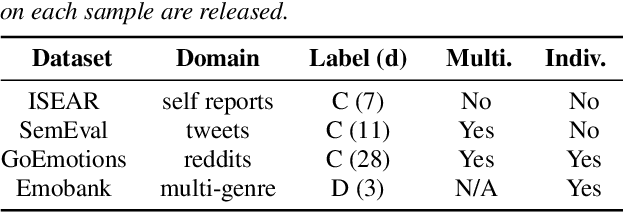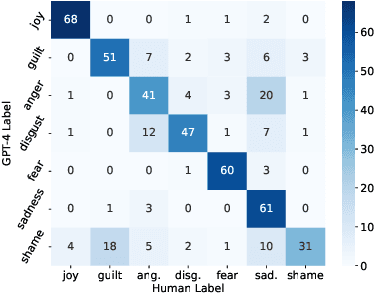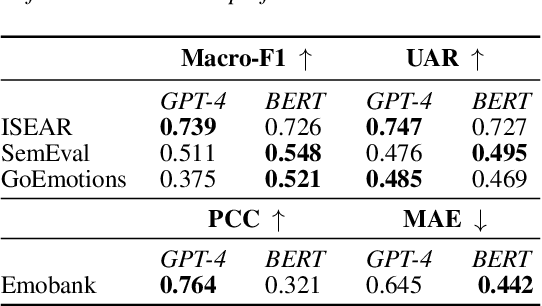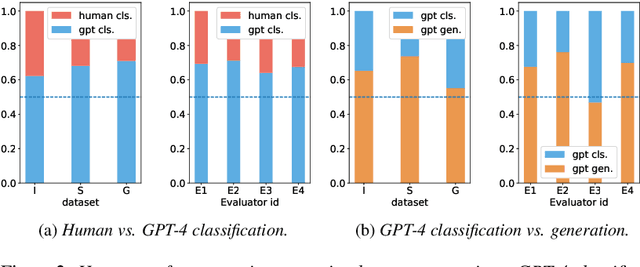From Text to Emotion: Unveiling the Emotion Annotation Capabilities of LLMs
Paper and Code
Aug 30, 2024



Training emotion recognition models has relied heavily on human annotated data, which present diversity, quality, and cost challenges. In this paper, we explore the potential of Large Language Models (LLMs), specifically GPT4, in automating or assisting emotion annotation. We compare GPT4 with supervised models and or humans in three aspects: agreement with human annotations, alignment with human perception, and impact on model training. We find that common metrics that use aggregated human annotations as ground truth can underestimate the performance, of GPT-4 and our human evaluation experiment reveals a consistent preference for GPT-4 annotations over humans across multiple datasets and evaluators. Further, we investigate the impact of using GPT-4 as an annotation filtering process to improve model training. Together, our findings highlight the great potential of LLMs in emotion annotation tasks and underscore the need for refined evaluation methodologies.
 Add to Chrome
Add to Chrome Add to Firefox
Add to Firefox Add to Edge
Add to Edge